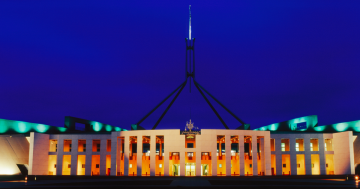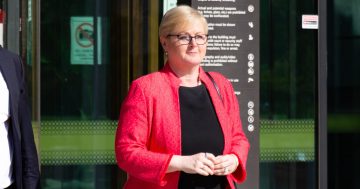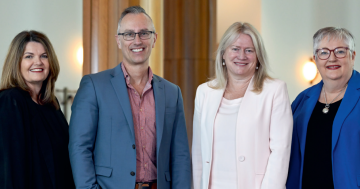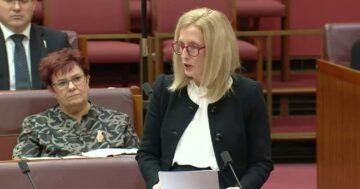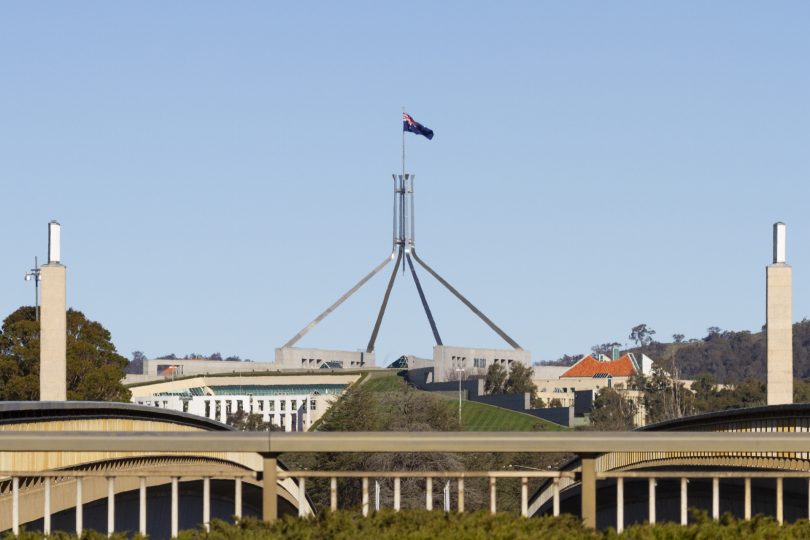
Parliament House is not the same as Canberra. Photo: Dominic Giannini.
Last week a horrific story emerged from Parliament House of a woman who was allegedly raped. I am only using the word ‘allegedly’ because that is appropriate, but let me tell you, I believe Brittany Higgins.
What is as distressing as the woman’s account of the alleged rape is the cover-up that ensued and the institutional level of it.
Subsequently, another woman has come forward to the media alleging that the same man also raped her, an attack that could have been prevented had the first alleged incident been investigated.
This situation and the political game-playing that have ensued clearly articulates an insidious culture. And to fully define what we are talking about, ‘culture’ is a collective or shared set of customs and social behaviours that shape the way, in this case, Parliament House operates.
Culture is very powerful. This latest story demonstrates that culture overrides people’s intuition, logic, codes of conduct and, perhaps, even the law.
Late in 2020, an ABC Four Corners investigation detailed an entrenched, misogynistic culture within the offices of Ministers of the Australian Government.
The story detailed affairs, allegations of sexual harassment, and overall described a workplace culture that is completely unacceptable in this day and age. These incidents are viewed as part and parcel of what has been happening for decades at Parliament House. A workplace (made up of multiple political parties and independents) that is dominated by male power, fuelled by sex and alcohol.
Prime Minister Scott Morrison has condemned the assault, apologised to Brittany Higgins and multiple reviews into the workplace culture of Parliament House have been tasked.
However, this comes in the context of Morrison’s comments that he was only prompted to take serious action when his wife asked him to view the alleged rape through the lens of being a father of daughters.
This is highly problematic and troubling.
Malcolm Turnbull, who preceded Mr Morrison, was also made to publicly address the culture of Parliament House. Until this culture changes, every subsequent leader of the Australian Parliament will have to confront this issue.
It is deeply concerning that women must, apparently, go to the media to have these issues addressed. It is also deeply concerning how many women (and men) may have been victimised, assaulted, harassed and bullied but do not tell their story publicly. This is what happens when there is a pervasive culture.
The media reporting of these stories, given they are of national interest, uses the name of our city – ‘Canberra’ – to describe Parliament House. Although the reporting makes clear that Parliament House is its own beast, almost above the law, the problem is always ‘Canberra’.
Many of us who live in Canberra drive past Parliament House to come to work each day. It sits proudly in the middle of State Circle at the centre of our city, representing our democracy.
Currently, the culture depicted through the media at Parliament House is not in line with our values as a nation. This culture is not in line with expectations of the rights of women, gender equality and the right to go to work without experiencing sexual assault, harassment or bullying.
The leaders at Parliament House need to understand that the media uses our name, ‘Canberra’, to report their workplace culture.
Canberra is a thriving, progressive city of nearly 450,000 people, half of whom are women. Although we still have a long way to go, we are a city proud of our work to address gender equality.
We don’t tolerate violence towards women. We have a Legislative Assembly with more women than men, of which I am proud to be a member.
I refer to the quote from retired Lieutenant General Morrison: “The standard you walk past is the standard you accept.” The people of Canberra do not accept this standard.
Dr Marisa Paterson MLA is a member for Murrumbidgee in the Legislative Assembly.













